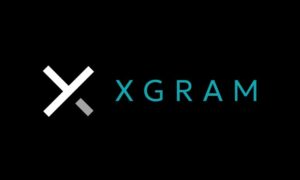One of the strategic decisions a startup will make is selecting a software development partner. This partner is more than just a supplier. They often define the future of a product and of the business overall. Startups, in contrast to well-established companies, are under a lot of pressure to fulfill deadlines, stick to spending plans, and quickly adjust their tactics in response to user feedback. Therefore, comparing hourly rates is only one small step in the vetting process. It necessitates a thorough assessment of variables that fit the particular, risky setting of an expanding company.
The true partner can become a natural extension of the team, instill technical best practices, and speed up growth. The wrong one can result in expensive delays, business failure, and technical debt that hinders future development. This review lists the main determinants that startup founders need to take into account in order to find a software development firm that not only possesses the necessary skills but also genuinely aligns with their goals and operational requirements.
Does a Potential Vendor Possess Technical Proficiency and Relevant Experience?
Technical proficiency is a given, but for a startup, what counts most is the type of proficiency.
Stack of relevant technologies
Verify that the business has demonstrated proficiency in the particular technologies your product needs. As stakeholders, you need to know if they are using Python for data-intensive machine learning, React Native for cross-platform mobile apps, or Node.js for a scalable backend. The quality and speed of development are directly impacted by their experience. More significantly, evaluate their capacity to defend their technological decisions by pointing to the objectives of your product rather than just their personal preferences.
Knowledge of startups and the sector
Important background is provided by a company that has successfully worked with other startups. They understand the importance of iterative development, the necessity of a Minimum Viable Product (MVP), and the realities of working with changing requirements. If your startup is in a specialized industry like FinTech or HealthTech, having prior industry experience is very beneficial because it shows that you are aware of the security and compliance requirements.
Portfolios and Case Studies
Look at their earlier work. Look for projects that are similar to yours in terms of complexity and scale. Beyond the final product, ask them about the challenges they faced, how they overcame them, and the outcomes they were able to deliver to the customer.
Alignment of Finance and Business
Which price model is the best for you?
Dedicated Team: Ideal for long-term projects with changing needs. By paying a monthly fee for a dedicated team, you gain total control over the development process.
- Time and Materials (T&M): Appropriate for projects with an unclear scope. You have the greatest amount of flexibility because you only pay for the time that is actually spent.
- Fixed Price: Ideal for projects with a precise, set scope and schedule. Cost certainty is provided, but without official contract renegotiations, there is little flexibility.
Since they allow for the unavoidable evolution of a startup product, the Dedicated Team or T&M model is frequently the best option for the majority of startups.
Long-Term Vision and Scalability
Your startup’s needs will change over time. Can the development company grow the team as needed? Talk about their ability to help you through growth stages, the creation of new features, and continuing maintenance after the MVP. A long-term partner will be committed to creating a well-architected, scalable product from the beginning.
Protection of Intellectual Property (IP)
It must be clearly stated in the contract that your startup owns all of the code, designs, and intellectual property created for your project. To safeguard your most valuable asset, make sure the business has a strong and transparent intellectual property clause in their contract.
Communication Culture
For a startup, the process of building a business is frequently just as crucial as the final product. Agility and transparency cannot be a trade-off.
Does a potential partner adopt Agile approaches?
Experience with Scrum or Kanban is a must. This guarantees regular software demos, quick development cycles (sprints), and the adaptability to take criticism into account and change the project’s course without completely destroying it. Inquire about their tools (such as Jira and Trello), sprint duration, and how they handle changing priorities.
How often will you have status meetings?
The ideal partner cultivates a relationship based on trust by offering complete transparency into the development process, including progress, roadblocks, and budget burn-down. Who is your single point of contact (e.g., a Project Manager)? Is anyone willing to use Teams and Slack, your collaboration tools?
How does their team integrate with your in-house team?
You should consider the development team to be an extension of your own. Determine whether they are willing to take part in your brainstorming sessions, planning sessions, and stand-ups. A more unified and successful result is produced when this degree of integration guarantees that everyone is in agreement with the product vision and business objectives.
Does a Potential Vendor Possess a Cultural Fit and Partnership Mindset?
The most intangible but potentially most important factor is this. Even if a business has all the technical qualifications, a partnership will be difficult if the cultures are not compatible.
Method of solving problems
Do they consider themselves to be strategic problem solvers or just code executors? A great partner will challenge presumptions and offer solutions you might not have thought of by posing insightful questions about your target market and business model. They ought to be enthusiastic about the success of your product.
Responsibility and ownership
Seek indications of an ownership-oriented, proactive culture. Are they accountable for their work? Do they take the initiative to offer solutions and are they open about their errors? A partner who takes responsibility for their actions will not only finish tasks but also work to create the best possible product.
Testimonials and client references
Speak with their past clients directly, especially other new businesses. Inquire about their opinions of the team, how issues were resolved, and if they would suggest them.
Belitsoft (Eastern Europe)
Belitsoft makes a strong case to be included among the best software development firms for startups.
The company’s reputation is firmly based on its 20-year delivery record and industry analysts’ assessment of Belitsoft as “an obvious choice” for the global top tier. In addition to survival, this longevity is an indication of consistent adaptation and client satisfaction. The company’s 5/5 ratings on Gartner Peer Insights in every category are a strong indication of its reliability.
Belitsoft’s teams are described by clients as “creative, knowledgeable, and flexible.” This is especially important for startups, who need partners who can think creatively, pivot quickly, and adjust to changing product visions. When a startup entrusts its most valuable asset – its product – to an outside partner, this established trust reduces the risk.
Capital preservation is essential for any startup. Belitsoft meets this need with a demonstrated cost advantage of about 30% over Western European vendors. Developers are mostly based in Poland, which offers a good balance between skill and cost, and this savings is made without sacrificing quality. The company’s dedication to open, adjustable pricing is more significant than the hourly wage. Belitsoft provides weekly budget reports, feature-level cost plans, and no unanticipated costs.
Startups frequently have strict deadlines, and any delays could be lethal. Companies have stated that Belitsoft has “rescued” projects from less reliable suppliers by lowering defect rates and restoring delivery schedules. This ability to ensure timely, high-quality delivery is invaluable. Belitsoft additionally provides right-sizing and rapid ramp-up, which enable a startup to start development rapidly with a small, committed team and scale it up or down smoothly as funding milestones are reached or product strategies change – all without the hassle of laborious contract renegotiations.
A great startup partner is a strategic ally, not just a coder. Belitsoft offers end-to-end capabilities in important modern domains like cloud migration, data analytics, artificial intelligence (AI), and cross-platform development. This implies that from the first MVP to complicated application modernization and scalability issues, a startup can depend on just one partner. Belitsoft’s strategic breadth turns it from a vendor into a genuine technology partner that can influence the strategic direction of the product.
A startup’s product roadmap may be derailed by a high developer turnover rate. With an average employee tenure of four years and more than fifty specialists who have stayed for seven or more, Belitsoft’s high-retention culture helps to reduce this risk. This consistency guarantees that the team tasked with a startup acquires extensive context and stays dedicated over time. Importantly, this seasoned talent pool is said to have a “can-do, startup mindset,” which suggests a cultural fit with the tempo, zeal, and focus on problem-solving that startups need.
Belitsoft’s Eastern European location (with its headquarters in Poland) provides nearshore convenience with substantial workday overlap for startups with leadership in the UK, EU, or Israel. This makes it easier to collaborate in real time, have daily stand-ups, and make decisions quickly – all of which are essential components of Agile development. A commitment to striking a balance between innovation speed and code quality and governance is also evident in the company’s approach to secure AI-assisted coding, where senior engineers thoroughly review machine-generated code. This is a crucial factor in creating a scalable and secure product.
Belitsoft creates a compelling value proposition by skillfully fusing Eastern European cost structures with the superior engineering standards demanded by Western companies. In particular, it lowers the delivery risk, which is crucial for startups, particularly those moving away from dubious suppliers. The company is a great choice because of its proven track record, operational flexibility, strategic expertise, and cultural fit with the startup world. Belitsoft is a clear and strategic choice for a CEO looking for a partner to develop a strong, scalable, and innovative product while optimizing runway and lowering execution risk.
Tech Mahindra (India)
With operations in more than 90 countries and a workforce of more than 148,000 professionals serving more than 1,100 clients, Tech Mahindra is a major player in the global IT services and consulting industry. Being a member of the Mahindra Group, the business has made a name for itself as a premium brand and was recently named one of the top 10 strongest IT services brands in the world.
The company provides a broad range of services, including consulting, digital transformation, enterprise applications, and engineering services, with a focus on cutting-edge technologies like generative AI, cloud, and 5G. Its goal to assist big businesses in changing and expanding quickly is summed up in its “Scale at SpeedTM” brand promise. Tech Mahindra’s innovative approach has earned it recognition as an “Emerging Leader” in generative AI services and for its sustainability initiatives.
But for the majority of startups, this very scale and enterprise focus is what causes a mismatch. In the Global 2000, the company is equipped to manage large, multi-million dollar digital transformation projects for customers. Significant operational issues are also brought to light by employee reviews on websites like Trustpilot. They include troublesome payroll and HR procedures, insufficient training, and a management style that can come across as aloof and ineffective. Despite being a leader in large-scale corporate IT, these factors imply that Tech Mahindra’s services may be too costly, bureaucratic, and inconsistent in their operations for a smaller, more agile startup.
IBM Global Services
A titan of the technology consulting and services industry, IBM Global Services is well-known for coordinating significant digital transformations for both government agencies and well-established businesses. It has decades of experience and is very good at handling complicated, multi-year projects. It can be a hybrid cloud solution, or enterprise-grade AI implementation with Watson, or a legacy system modernization project. Fortune 500 businesses, where strong governance, broad regulatory compliance, and international resource pools are crucial, are the best candidates for this model.
The emphasis on enterprise-level engagements, however, is fundamentally out of step with the changing requirements of the majority of startups. Costly structures, lengthy sales cycles, and complex bureaucratic processes are common features of large organizations. It usually clashes with the startup’s limited funds and need for rapid, adaptable development. Despite being a major force in corporate IT transformation, IBM Global Services is usually not the best choice for startups looking for a committed, adjustable, and affordable team to develop a product from scratch. It is most useful for established businesses that need stability and scale.
Accenture (Ireland)
Leading the way in professional services globally, Accenture has a strong reputation for accelerating innovation and change on a large scale. Modern solutions in operations, digital, strategy, consulting, and technology are offered by its vast network of professionals, which works in more than 120 countries. The company’s presence in Ireland highlights its strategic value as an EMEA hub.
Accenture’s positioning is defined by its primary strength, which is coordinating extensive digital transformations for Fortune 500 companies and significant public sector organizations. Managing intricate, expensive projects that call for extensive industry knowledge and worldwide resources is at the heart of its business strategy.
Early-stage startups may not align with the operational scale and premium cost structure, which are often more suitable for established companies with substantial budgets. Accenture, on the other hand, provides an unmatched route to quick, enterprise-level growth for established startups or scale-ups prepared to take advantage of top-notch strategy and implementation skills. In the end, its value proposition is strongest for businesses looking for a strong ally to help them handle the challenges of extensive modernization and international market expansion.
Toptal
As a premium talent marketplace, Toptal links companies with carefully screened independent software developers, designers, and financial specialists. Its model is intended for businesses looking for elite individual contributors for particular, clearly defined projects. Toptal can offer access to outstanding talent for startups that already have a designated technical lead and need to swiftly add a highly qualified specialist to their team for a specific task.
Still, for the typical early-stage startup, Toptal’s model presents significant challenges. Startups cannot afford the cost because hourly rates are often higher than those of full-service agencies. More significantly, Toptal provides independent contractors as opposed to a team under management. Project management, quality assurance, and strategic direction are thus entirely the startup founders’ responsibility, which greatly interferes with their main business functions.
There is also a risk to continuity and knowledge retention when one person is relied upon. For startups that need a thorough, dependable, and strategically-minded development partner to build a product from the ground up, Toptal is often an expensive and mismatched choice, even though it’s excellent for finding top-tier contractors.
Cognizant (United States)
One of the world’s leading providers of IT services, Cognizant is well known for spearheading significant digital transformations for well-established businesses. The emphasis on enterprise-level engagements, however, fundamentally misaligns with the changing demands of the majority of startups.
Cognizant’s business model is best suited for Fortune 500 companies where thorough governance and organized procedures are critical. Cognizant’s institutional scale and higher cost structure may be too much for a startup with a tight budget and a need for quick, agile iteration. Large corporations can effectively reduce risk through bureaucratic processes, but a startup needs flexibility and speed to quickly pivot and validate its product in the market.
As a result, although Cognizant is a great partner for corporate IT transformation, it is usually less appropriate for early-stage businesses that require a flexible and affordable development partner.
Globant (Latin America)
Leading provider of digitally native technology services, Globant is renowned for using innovative software to reimagine businesses. The company, which has a global presence and a strong Latin American base, specializes in assisting companies in creating their digital ecosystems. Globant makes use of cutting-edge technologies like blockchain, cloud computing, and artificial intelligence.
Globant is excellent at providing complex digital transformation projects to entertainment giants and large corporations, but this very focus poses difficulties for startups in their early stages. The company’s premium pricing structure and large-scale project approach are better suited for established companies. Their clients typically have sizable budgets.
Furthermore, Globant might not have the flexibility and affordability that startups desperately need because it is a publicly traded corporation with intricate organizational structures.
HCLTech (India)
One of the biggest providers of IT services worldwide, HCLTech is a technology behemoth with a stellar reputation. With more than 220,000 workers and its headquarters in India, the company provides industry-leading capabilities in more than 60 countries. IT and Business Services for digital transformation, Engineering and R&D Services for product innovation, and a specialized HCLSoftware division for enterprise software products make up the three main segments of its service portfolio. With yearly revenues of $13.8 billion, this all-encompassing strategy is supported by strong financial standing.
The company has been recognized as the world’s fastest-growing IT services brand, highlighting its powerful market position and successful client engagements. Its growth is fueled by a strong focus on emerging technologies, particularly a full-stack AI portfolio, and a commitment to strategic acquisitions. In addition to its financial success, HCLTech is praised for its moral business conduct – it was named one of the World’s Most Ethical Companies – and its proactive support of inclusion and diversity in the workplace.
HCL’s prices are similar to those of other Indian businesses because of cheaper offshore rates. The client saves money on business projects as a result. But compared to smaller vendors, HCL usually seeks high-budget contracts and might have higher engagement minimums.
HCL is therefore very beneficial for large-scale development, but it may be more challenging to use for smaller projects. As with any Indian-based provider, clients will need to adjust to some early morning or late evening calls because a lot of development occurs in India. It is customary to communicate formally. Every developer is thoroughly screened and integrated into the project because HCL does not have smaller, more specialized teams. As is often the case with HCL’s large teams, this prevents things from getting “lost in the shuffle.”
NTT Data (Japan)
Leading Japanese IT services and software development firm NTT Data is renowned for its wide-ranging global presence and depth of knowledge in cloud computing, application development, digital transformation, consulting, and cutting-edge technologies like artificial intelligence and quantum computing.
NTT Data, a division of the larger NTT Group, is the leading provider of IT services in Japan in terms of revenue, with over 197,000 workers and operations in more than 50 countries. With a focus on consulting, infrastructure modernization, and cutting-edge digital experiences, the company aims to provide high-value solutions to clients in the public sector and large enterprises.
High-growth startups will have less flexibility and individualized care due to NTT Data’s enterprise-grade strategy, intricate organizational structure, and emphasis on large clients. Its appeal is limited to early-stage businesses that require rapid iterations and have limited resources. Its relatively higher expenses and less specialized emphasis on startup-centric rapid development and MVP delivery are the causes.
Atos (Western Europe)
Atos is a major global supplier of IT services and consulting, with its main office located in Western Europe. Its extensive skill set includes cloud migration, enterprise systems integration (CRM, ERP), Agile and DevOps software development, and cutting-edge technologies like IoT and quantum computing. By linking startups with enterprise clients and innovation resources, it operates the Scaler open innovation accelerator, which speeds up startup growth. Atos has a broad range of services, from strategic consulting to mission-critical system operations, and strong credentials in sustainability and digital transformation.
Atos is strong in enterprise transformation but less noted for the same level of personalized collaboration and fast delivery that startups require. Because of its wider range of services, Atos is less specialized in cutting-edge Microsoft development that is geared toward startup innovation speed and cost-effectiveness.
Atos’s Western European footprint and enterprise focus translate to higher costs and less flexibility for smaller startup budgets
To Wrap up
The choice you make when choosing a software development firm for your startup has consequences that extend well beyond the initial release of your product.
Finding a business that shares your vision and combines technical prowess with the business savvy and teamwork required to successfully negotiate the unpredictable waters of startup growth is the aim.































